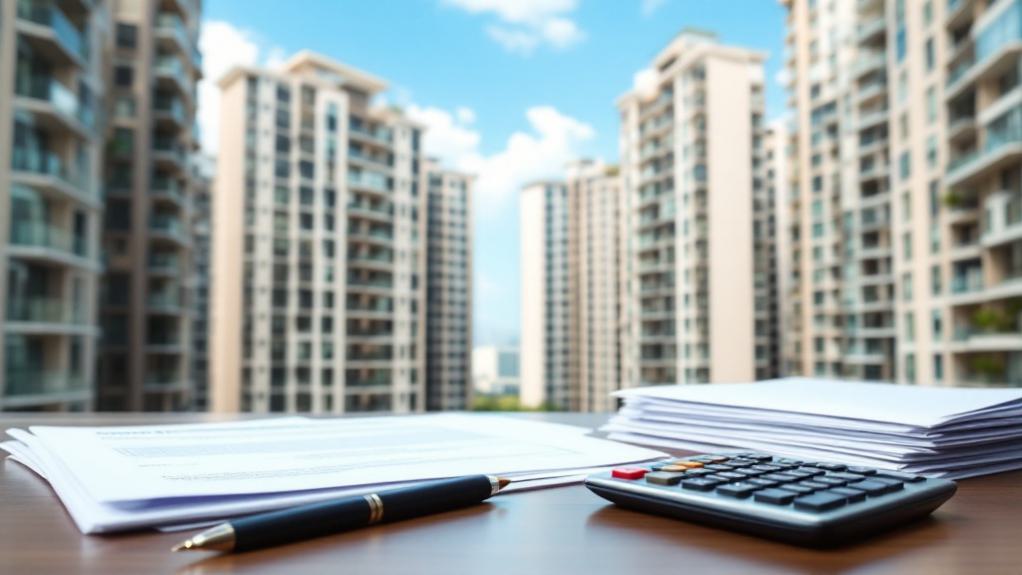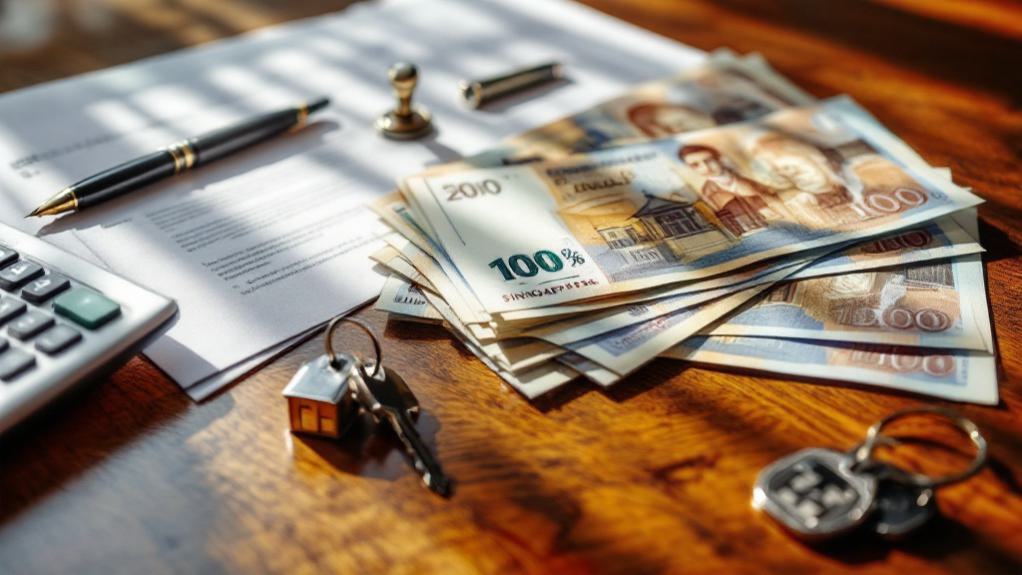Additional Buyer’s Stamp Duty (ABSD) is a supplementary tax implemented in Singapore since 2011, applying to residential property acquisitions based on buyer profile and property count. Singapore Citizens face 0% for first purchases, escalating to 30% for third properties, while foreign investors incur a substantial 60% rate. Payment is required within 14 days domestically using cash or CPF funds, with specific exemptions available for qualifying married couples and under certain Free Trade Agreements. The framework continues to evolve with market conditions.

While property acquisition in Singapore represents a marked investment opportunity for many, the Additional Buyer’s Stamp Duty (ABSD) stands as a critical fiscal consideration that substantially impacts purchase decisions across the residential real estate market. Introduced in 2011 as a market cooling measure, ABSD functions as a supplementary tax imposed on top of the standard Buyer’s Stamp Duty, with rates strategically calibrated according to the buyer’s residency status and the number of properties already owned within Singapore’s jurisdiction.
The current 2025 ABSD framework implements a tiered taxation system that progressively increases with each additional property acquisition. Singapore Citizens face no ABSD on their first residential purchase, while subsequent properties incur rates of 20% and 30% for second and third acquisitions respectively. Permanent Residents encounter higher obligations, beginning at 5% for initial purchases and escalating markedly thereafter. Foreign investors bear the most substantial tax burden at 60% for any residential property, while entities face an even steeper 65% rate, reflecting the government’s prioritization of owner-occupation over investment speculation.
Calculation of ABSD utilizes the higher value between the purchase price and market valuation, with payment required within 14 days of transaction completion domestically, or 30 days for overseas agreements. The tax may be settled using cash or funds from the buyer’s Central Provident Fund Ordinary Account, providing some flexibility in financial planning for eligible purchasers.
Certain exemptions exist within the ABSD framework, particularly for married couples upgrading from public housing to private residences, specific nationalities under Free Trade Agreement provisions, and certain inherited properties. The April 2023 revision of ABSD rates marked a substantial increase, with foreigners experiencing a doubling of their tax obligation from 30% to 60%, reflecting the government’s intensified focus on managing investment demand while maintaining residential affordability for citizens. These adjustments have visibly reshaped transaction volumes and buyer behavior, particularly within the luxury property segment, while contributing dramatically to government revenue streams. The government implemented these cooling measures in response to accelerating property prices and strong demand from both local and foreign buyers in the Singapore real estate market.
Frequently Asked Questions
Is ABSD Refundable if I Sell My Property Within a Specific Timeframe?
ABSD refunds are available in specific circumstances rather than as a general policy.
Singapore citizens who are married couples may qualify for refund when selling their first property within six months of purchasing a second residence.
Additionally, single Singapore citizens aged 55+ can now apply for ABSD refunds under similar timelines since February 2024.
Trust-related ABSD refunds may also apply, with 65% potentially refundable when meeting stringent qualifying conditions.
How Does ABSD Affect Property Purchased Under a Trust or Company?
Properties purchased under trusts attract a 65% ABSD rate payable upfront, though refunds are possible if specific conditions regarding beneficiary identification and irrevocable ownership are met.
Similarly, corporate acquisitions of residential properties incur a 65% ABSD, with housing developers subject to an additional 5% non-remittable component.
The regulatory framework, enhanced in April 2023, includes Additional Conveyance Duties for trust transfers of equity interests in property-holding entities, effectively addressing taxation loopholes in trust arrangements.
Can CPF Funds Be Used to Pay for ABSD?
CPF funds can indeed be utilized for Additional Buyer’s Stamp Duty (ABSD) payments, subject to specific conditions.
Buyers may use their CPF Ordinary Account to cover ABSD charges, either directly for new launch properties or via reimbursement for resale properties after initial cash payment.
This usage remains contingent upon maintaining the Basic Retirement Sum in one’s account, available OA balance, and is restricted to Singapore Citizens and Permanent Residents purchasing non-investment properties.
Are There ABSD Exemptions for Married Couples With Different Nationalities?
Yes, married couples with different nationalities qualify for ABSD exemptions under specific conditions.
When one spouse is a Singapore citizen, the couple may apply for full ABSD remission on their first residential property purchase, provided the property serves as their matrimonial home and neither spouse owns other residential properties.
The property must be held jointly in equal shares, and the remission application must be submitted through IRAS’s e-Stamping portal within six months of the purchase date.
How Is ABSD Calculated for Mixed-Use or Commercial-Residential Properties?
ABSD for mixed-use properties applies exclusively to the residential component, with the commercial portion exempt.
The calculation requires apportionment based on factors including URA zoning classifications, gross floor area allocation, and actual usage patterns.
Professional valuations typically determine the split between residential and commercial components, applying standard ABSD rates only to the residential portion’s value.
Entity buyers face higher rates, while specific exemptions may apply under qualifying development scenarios or integrated development allowances.





